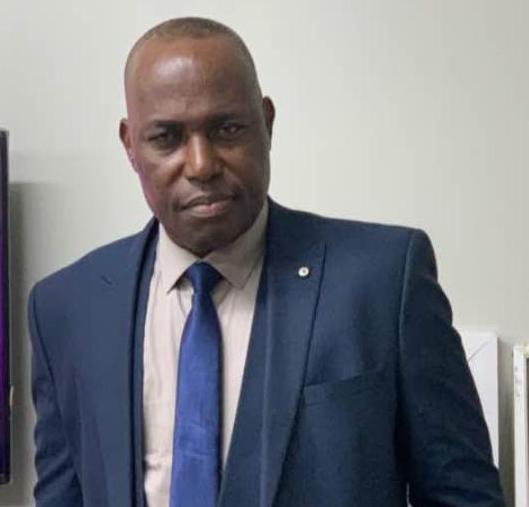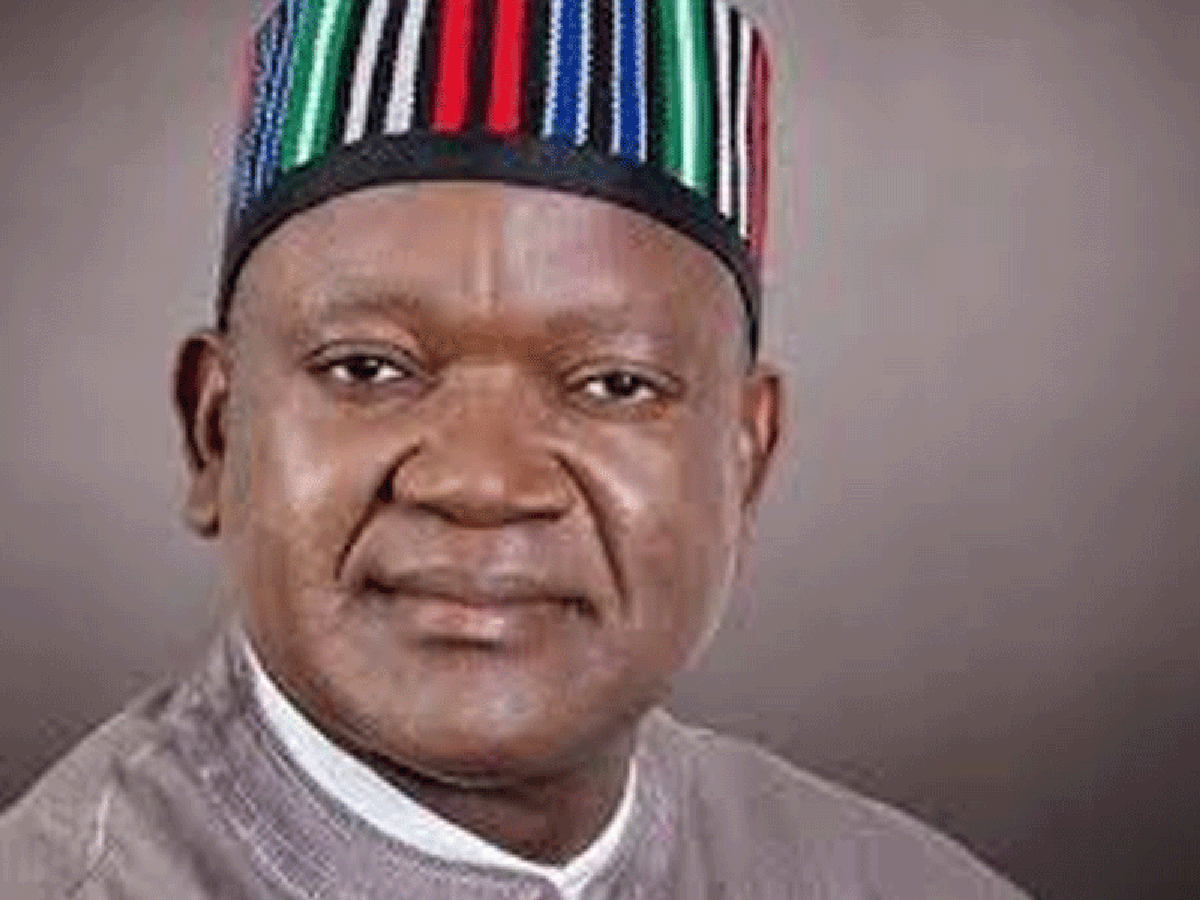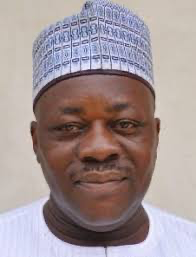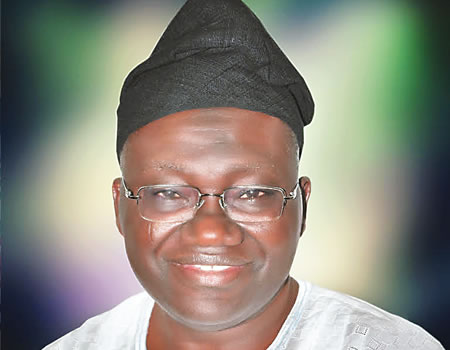Scrap information ministry, return Nigerian Broadcasting Service… , By Martins Oloja
Although election consequences aren’t over until the courts say they are over in Nigeria, this is a time to advise our political leaders who are taking over from Buhari and co; on May 29, 2023 that they need to begin to manage priorities and expectations the morning after May 29, 2023. Specifically, we need to restructure our mindset to be able to reform the public sector for real service delivery and public good. Those who have promised to consolidate on Buhari’s achievements should note that we only regarded that provocative campaign strategy as politics of succession because the Buhari’s eight years should just be regarded as the years that the locusts ate from us. From the economy through critical infrastructure to national building and security, the lanky General from Daura, we all trusted in 2015 disappointed us. And so Buhari’s successor and other leaders from subnational governments and the National Assembly should note that if they assume duties with the food-is-ready mentality, they will begin to manage crisis within the first 100 days in office. This is, therefore, a time to compile some of the institutional weaknesses of the outgoing administration so that they can leverage on revival of existing public institutions and public policies to take the country away from the brink of collapse. Here is the thing, there are enough laws, institutions and policies to run the country in a way that the world will begin to respect us again. And as I have noted here several times in recent weeks, the first focal point should be how to revamp the federal civil and public service for impactful service delivery. Security and welfare of the people as the primary purpose of government cannot be met unless there is an efficient civil service. Doubtless, most of the public service reform gains from Obasanjo through Yar’Adua to Jonathan appear to have been ruined by the ineptitude of the outgoing administration. Even the Oronsaye Report that the Buhari administration touted several times as a policy option to cut the cost of governance has become a mirage, after all.
And so the procrastination spirit that has been the bane of the Buhari administration should not be allowed to creep in at this time that people are saying blessed are you if you are hopeless for you will not be disappointed again.
I would, therefore, like to chip in this one as part of the low hanging fruits a new administration can pluck to begin restructuring of the public sector without setting up another White-Paper panel. As I was saying, a solid presidential bureaucracy will know what to do immediately.
Now to the brass tacks, there is a public media issue that shouldn’t be delayed within the construct of innovation for development we need now. It is the expediency of merging the Federal Ministry of Information and Culture with the Ministry of Communication and Digital Economy. This isn’t strange.
And it is not about anybody or the outgoing Minister of Information and Culture or anyone in particular. It is about “innovating our way into the future,” borrowing from the brilliance of the theme of Poju Oyemade’s Platform on Channels Television on May 1, 2023. It is about Africa’s most populous country and anchor of hope of the black nation, Nigeria. It isn’t about a new job or portfolio for a party supporter or a journalist or a public relations guru who helped someone to power in a food-is-ready era. It is about learning, unlearning and relearning at this time. It is about lean government to reduce cost of governance without compromising efficiency and effectiveness at this time. It is about innovation for efficiency in service delivery. It isn’t complicated at all. In this age of digital media technologies that daily disrupt journalism and public relations practice, what is needed is a strategic merger of the old Information Ministry with Communication Ministry. There is no need to keep so many ministries doing the same job. Just like the Ministry of Police Affairs and Interior Ministry. Why do you have Agriculture and Water Resources separately? There are more duplicates listed in the Oronsaye Panel Report since 2011. After all, Dr. Goke Adegoroye’s 2015 classic (book) on reform agenda in public service posits that the federal bureaucracy can’t take more than 29 ministries, after all. We have about 48 ministries now with so many otiose agencies. This is part of the bane of government in Nigeria that is now borrowing to pay civil and public servants. Let’s be innovative now: in all modern economies, there is no separate ministry to manage public relations and spokespersons. This is also applicable to state governments. What is expedient at this age that digital technologies daily disrupt is communication and information technology ministry or Department. That can take care of all information and information technology issue. A ministry of communication and information technology can be charged with communication responsibilities, which include regulating communications, postal services, broadcasting and print media – for the purpose of even regulation. What is the purpose of today’s Information and Culture Ministry? Culture is too important to be merged with Information that isn’t necessary at this time. Check even South Africa, they don’t have any Ministry of Information. That country, South Africa, a member of G-20 and BRICs, an emerging market cartel, boasts of eight of the 10 best universities in Africa in all ratings of global standard. All chief executives from the president to the subnational powers called governors and CEOs of other arms and agencies of government have their communication officers. The intelligence and security agencies including the police service have their public information managers. There is no need for Information Ministries in 21st century Nigeria. I haven’t heard of Information Ministers of different countries meeting anywhere to discuss how to promote the image of governments. There is no room for such management in this age when propaganda can’t be taught in any mass communication schools now unbundled as part of innovation and growth in the information (technology) sector. The only source of unnecessary visibility for the Information Ministries is ‘supervision’ of radio and television stations at federal and state levels. That too has over the years distorted and diminished the role of public broadcasters in Nigeria.
That is why I would like to suggest too to the New Sheriff that will come to town in Abuja from May 29, 2023 that they need to restructure the three federal public broadcasters, namely, Nigerian Television Authority (NTA), Federal Radio Corporation of Nigeria (FRCN) and Voice of Nigeria (VON) into one Nigerian Broadcasting Corporation (NBC). This is the structure of most public broadcasters in global context. Again, South Africa leads the way here with South African Broadcasting Corporation (SABC, Africa). The same goes for the powerful and very British, British Broadcasting Corporation (BBC). These stations in South Africa and United Kingdom are very commercially viable. They practice robust journalism but they are not tied to the apron strings of any ministries of information. The Culture Department, which has marginal oversight function on the BBC rarely reports the public broadcaster to the Parliament when they feel that the public broadcaster, BBC errs in judgment. But then although they have broadcasting codes, there is no central agency that acts as a regulator to accuse, judge and impose arbitrary fines and fees on BBC as we often have in Nigeria. In Nigeria, there is always a regular amendment of the very voluminous ‘Nigerian Broadcasting Codes’ book, which is being regularly criticised for attacking press freedom. The Information Minister can always amend and update the Codes to attack a section of the private broadcasters, especially for political reasons. That is also why the existence of the office of the Minister of Information is inimical to the growth of robust journalism in a democracy.
ON February 4, 2018, I raise this same issue here in an article titled, ‘A Time To Restructure NTA, FRCN, VON.’ In the article, I had pointed out that one of our best journalists here, Ms Kadaria Ahmed had been resourceful because she had a solid career with BBC for 13 years before returning home. In the same vein, I had then drawn attention to the fact that Ms Toyosi Ogunleye, an award-winning Editor at The Punch then could also find it worthy to join the BBC from The Punch because the BBC has a brand reputation that our local brands do not have and may never have as long as they continue to work in bondage of the Information Ministry, even as they (NTA, FRCN and VON) have some of the best trained broadcasters in the country. Read the link below for the details: https://guardian.ng/sunday-magazine/a-time-to-restructure-nta-frcn-and-von/
This is the conclusion of the 2018 suggestion on the point at issue:
‘…So, as the wind of restructuring is blowing even in Abuja now, I would like to advise Nigeria’s Information and Culture Minister, Alhaji Lai Mohammed to lead the charge to restructure the public broadcasters – NTA, FRCN and VON in public interest. After all, the tone for the re-engineering of the three separate organs was thankfully set in 2011 when the Stephen Oronsaye Panel report and White Paper (2013), which recommended rationalisation of numerous government agencies, also suggested a merger of the three organs to be Nigerian Broadcasting Service (NBS) under one national executive management.
But for the national broadcasters, this is a time to restructure with a view to privatising them ultimately. What good do the NTA, FRCN and VON still serve the Federal Government that underfunds and mismanages them? Don’t get it twisted, the ruined broadcasting corporations, still keep some of the brightest and the best broadcasters who have ironically been working in bondage.
What is more, technology has disrupted the dubious national security fear the military authorities used to hold on to the organs. First, the authorities can muster some robust political will to sell their major shares (of NTA, FRCN and VON) to the members of staff and some interested Nigerian investors. Yes, I mean resourceful investors who can rebrand the broadcasters into a truly African Voice that can also project the culture of the black race in global context.
That radical move will be a reassuring signal that indeed the presidency and the ruling party are irrevocably committed to restructuring of the troubled federation. This certainly is a time for the Federal Government to free the long-suffering NTA, FRCN and VON and let them go and prosper in the field where Aljazeera too, owned by Qatar (through a public trust), is serving the interest of the Middle East….’
The conclusion of the whole matter is that for the new administration to set the tone for restructuring of the federation within the construct of Open Government Partnership (OGP) the Federal Government signed up to in 2016 and expediency of cutting cost of governance, they should begin by merging Information (and Culture) Ministry with the Communication and Digital Economy Ministry. Besides, they should immediately merge NTA, FRCN and VOA into a world-class Nigerian Broadcasting Service (NBS). All other concomitant reform issues will follow this innovation for our great country.
Article culled from the Guardian



